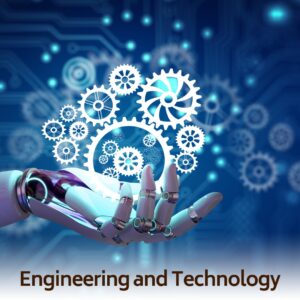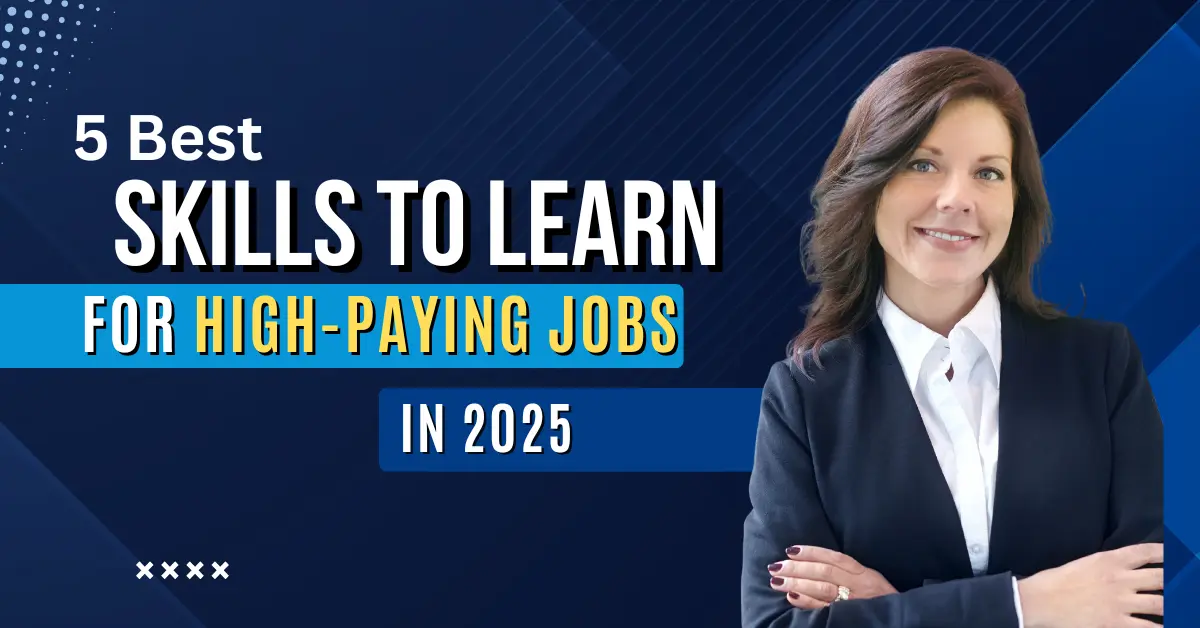
Explore the Best Career Options After 12th: A Comprehensive Guide In 2024
Best Career Options After 12th
Choosing the right career path after completing the 12th grade is a crucial decision that sets the foundation for one’s professional journey. For students from the science stream, there are numerous rewarding career options to explore.
Introduction
The transition from High School to Higher Education or the workforce is a significant milestone in every student’s life. With numerous career paths to choose from, it’s essential to explore the best options available after completing 12th grade. In this comprehensive guide, we’ll delve into various career avenues, including traditional and emerging fields, to help students make informed decisions about their future.
Best Career Options After 12th
With advancements in technology and innovation, fields like engineering, medicine, and computer science offer promising opportunities. Engineering, in particular, offers diverse specializations such as Mechanical, Electrical, and Computer Engineering, Catering to various interests and skill sets. The Medical Field, including MBBS, BDS, and allied Health Sciences, provides avenues to make a significant impact on society through Healthcare.
Best Career Options After 12th Science for Girls
Options like Medicine, Biotechnology, Pharmacy, Nursing, and Environmental Science offer diverse career opportunities in rewarding fields. Additionally, the growing demand for professionals in the fields of Biotechnology, Pharmaceuticals, and Research offers lucrative career prospects for science graduates. For those inclined towards Mathematics and Analytics, Pursuing Courses in Data Science, Actuarial Science, or Statistics can lead to rewarding careers in sectors like finance, insurance, and analytics.
Best Career Options After 12th PCM
(Physics, Chemistry, Mathematics) for girls other than Engineering include Architecture, Aviation, Actuarial Science, Computer Science, and Research in fields like Astrophysics or Environmental Science, offering diverse and fulfilling opportunities beyond traditional engineering roles.
On the other hand, Best Career Options after 12th Students have a plethora of best career options after 12th commerce. With a focus on finance, accounting, and business management, Careers in Chartered Accountancy (CA), Company Secretaryship (CS), and Cost and Management Accountancy (CMA) offer excellent prospects for growth and high salaries. Additionally, Pursuing Courses in Finance and Banking, such as B.Com (Hons) or Bachelor of Business Administration (BBA), can open doors to careers in Banking, Financial Analysis, and Investment Banking.
Moreover, with the rise of Digital Commerce and E-commerce Platforms, Careers in Digital Marketing, E-commerce Management, and Entrepreneurship have gained prominence, offering exciting opportunities for Commerce Graduates to carve their niche in the Digital Landscape.
Here Are Some Best Career Options After 12th
Engineering and Technology
One of the best career options after 12th science, Engineering remains a popular choice among students after completing 12th Grade. With branches like Mechanical, Civil, Electrical, and Computer Science Engineering, Students can pursue their interests in various fields. Additionally, Emerging disciplines like Artificial Intelligence, Data Science, and Cybersecurity offer exciting opportunities in the tech industry.

Top 10 Core Job Profiles In Engineering and Technology :
- Mechanical Engineer: Designing, Analyzing, and improving mechanical systems and devices.
- Electrical Engineer: Developing, testing, and maintaining electrical systems, equipment, and components.
- Civil Engineer: Designing, constructing, and overseeing infrastructure projects such as buildings, bridges, and roads.
- Software Engineer: Developing, Testing, and maintaining software applications and systems.
- Aerospace Engineer: Designing and testing aircraft, spacecraft, and related components and systems.
- Chemical Engineer: Designing and optimizing processes for producing chemicals, fuels, and other products.
- Environmental Engineer: Addressing environmental issues by designing and implementing solutions for pollution control, waste management, and sustainability.
- Biomedical Engineer: Developing Medical Devices, Equipment, and Procedures to improve healthcare outcomes.
- Industrial Engineer: Optimizing production processes, Systems, and workflows to enhance efficiency and productivity in various industries.
- Materials Engineer: Studying and developing materials with specific properties for use in manufacturing, construction, and other applications.
Medicine and Healthcare
For students passionate about serving humanity and making a difference in people’s lives, a career in Medicine or Healthcare is one of the best career options after 12th and highly rewarding. Pursuing an MBBS in nursing, Pharmacy, or Allied Health Sciences can lead to fulfilling careers as Doctors, Nurses, Pharmacists, or Healthcare administrators, addressing critical healthcare needs worldwide.

Top 10 Core Job Profiles In Medicine and Healthcare:
- Physician: Diagnoses and treats illnesses and injuries, prescribes medication, and provides medical care to patients.
- Surgeon: Performs surgical procedures to treat diseases, injuries, or deformities.
- Nurse: Provides patient care, administers medication, and assists physicians in various medical procedures.
- Pharmacist: Dispenses medications, provides drug information to patients and healthcare professionals, and ensures safe medication use.
- Medical Laboratory Technologist: Conducts laboratory tests on patient samples to diagnose diseases or monitor treatment effectiveness.
- Physical Therapist: Helps patients recover from injuries or surgeries, improves mobility, and manages pain through exercise and manual therapy.
- Occupational Therapist: Assists patients in regaining independence in daily activities after injury or illness, focusing on improving functional abilities.
- Radiographer: Operates imaging equipment to create diagnostic images of patients’ bodies, aiding in the diagnosis and treatment of diseases.
- Medical Research Scientist: Conducts research to advance medical knowledge, develop new treatments, and improve patient care.
- Healthcare Administrator: Manages healthcare facilities, oversees daily operations, ensures compliance with regulations, and develops strategies to improve patient care and efficiency.
Commerce and Business Administration
Commerce stream graduates have a plethora of best career options after 12th in the fields of Business Administration, Finance, and Accounting. Pursuing courses like BBA, B.Com, CA, CS, or MBA can open doors to lucrative Careers in Banking, Finance, Investment, Accounting, or Corporate Management, offering opportunities for growth and advancement.

Top 10 Core Job Profiles In Commerce and Business Administration :
- Accountant: Responsible for financial reporting, budgeting, and tax preparation.
- Financial Analyst: Analyzes financial data to provide insights for investment decisions.
- Business Development Manager: Identifies new business opportunities and fosters partnerships.
- Human Resources Manager: Oversees recruitment, employee relations, and performance management.
- Marketing Manager: Develops marketing strategies to promote products and services.
- Operations Manager: Manages day-to-day operations to ensure efficiency and productivity.
- Supply Chain Manager: Coordinates the flow of goods and services from suppliers to customers.
- Management Consultant: Provides strategic advice to businesses on improving performance and efficiency.
- Investment Banker: Facilitates mergers and acquisitions, and advises clients on financial transactions.
- Entrepreneur: Starts and manages their own business venture, taking on risks and responsibilities.
Arts and Humanities
The best career options after 12th arts are great, For students inclined towards creative expression, humanities, and arts-related fields offer diverse career paths. Pursuing courses in Literature, History, Sociology, Psychology, or Fine Arts can lead to careers in teaching, research, journalism, writing, advertising, public relations, or the performing arts, fostering personal growth and societal impact.

Top 10 Core Job Profiles In Arts and Humanities:
- Writer/Author: Crafting written content for various mediums including Books, Articles, Blogs, and Scripts.
- Journalist: Researching, investigating, and reporting news and events through Print, Broadcast, or Digital Media.
- Teacher/Educator: Educating and inspiring students in subjects like Literature, History, Philosophy, or Languages.
- Graphic Designer: Creating visual concepts and designs for print and digital media to convey messages effectively.
- Historian: Researching and analyzing historical events, periods, and cultures to contribute to our understanding of the past.
- Translator/Interpreter: Facilitating communication between people who speak different languages through written or spoken translation.
- Curator: Managing Collections of Art, Artifacts, or Historical Objects in Museums, Galleries, or Cultural Institutions.
- Social Worker: Providing support, Advocacy, and Resources to individuals and communities facing social, Emotional, or Economic challenges.
- Counsellor/Therapist: Offering guidance, Support, and Mental Health services to individuals dealing with personal, Emotional, or Psychological issues.
- Public Relations Specialist: Building and maintaining positive relationships between organizations and the public through strategic communication and media relations.
Law and Legal Studies
A career in Law offers intellectual challenges and opportunities to uphold justice and advocate for societal change. Pursuing LLB or integrated BA-LLB programs can lead to rewarding careers as lawyers, legal advisors, judges, or legal consultants, Enabling individuals to make a meaningful impact on legal systems and policies. It’s one of the best career options after 12th.

Top 10 Core Job Profiles In Law and Legal Studies:
- Lawyer/Attorney: Representing clients in legal matters, providing legal advice, and advocating for their interests in court proceedings.
- Judge/Magistrate: Presiding over legal proceedings, interpreting laws, and making rulings or judgments based on evidence and arguments presented.
- Legal Consultant: Offering expert advice on legal matters to individuals, businesses, or organizations outside of formal legal representation.
- Legal Researcher: Conduct in-depth research on legal issues, Statutes, Case Law, and precedents to support legal arguments or decision-making.
- Corporate Counsel: Providing legal advice and guidance to corporations or businesses on matters such as contracts, regulations, and compliance.
- Prosecutor: Representing the government in criminal cases, investigating crimes, and presenting evidence to secure convictions.
- Public Defender: Representing individuals who cannot afford legal representation in criminal proceedings, ensuring their rights are protected.
- Legal Analyst: Analyzing legal documents, statutes, and regulations to assess their implications and provide insights for decision-making.
- Legal Officer: Managing legal affairs within organizations or government agencies, ensuring compliance with laws and regulations.
- Law Professor/Lecturer: Teaching law courses at universities or colleges, conducting legal research, and mentoring aspiring lawyers and legal professionals.
Entrepreneurship and Start-ups
In today’s dynamic business landscape, entrepreneurship has emerged as an attractive best career options after 12th for young graduates. Starting a business or joining a start-up allows individuals to pursue their innovative ideas, take risks, and create solutions to real-world problems, fostering creativity, autonomy, and potential for success.

Top 10 Core Job Profiles In Entrepreneurship and Start-ups:
- Founder/CEO: Initiating and leading the development and growth of a new business venture.
- Co-founder: Collaborating with others to establish and manage a new business or start-up.
- Chief Operating Officer (COO): Overseeing day-to-day operations, ensuring efficiency and productivity.
- Chief Financial Officer (CFO): Managing financial planning, reporting, and analysis to support business growth and sustainability.
- Chief Technology Officer (CTO): Directing the development and implementation of technology strategies and solutions.
- Chief Marketing Officer (CMO): Leading marketing initiatives to build brand awareness, attract customers, and drive sales.
- Product Manager: Identifying market needs, developing product strategies, and overseeing product development and launch.
- Business Development Manager: Identifying and pursuing opportunities for business growth through partnerships, alliances, and acquisitions.
- Operations Manager: Managing various operational functions such as supply chain, logistics, and customer support.
- Human Resources Manager: Building and managing teams, fostering a positive work culture, and ensuring compliance with employment laws and regulations.
Vocational Training and Skill Development
With the emphasis on skill-based education and vocational training, students can explore the best career options after 12th, diverse career options through certificate courses, Diploma Programs, or skill development initiatives. Fields like Hospitality, Tourism, ITI Trades, Digital Marketing, Graphic Design, or culinary arts offer avenues for immediate employment and career advancement.

Top 10 Core Job Profiles In Vocational Training and Skill Development:
- Vocational Trainer: Providing instruction and hands-on training in specific vocational skills or trades.
- Training Coordinator: Planning, coordinating, and overseeing vocational training programs and activities.
- Curriculum Developer: Designing and developing curriculum and training materials for vocational programs.
- Career Counselor: Advising individuals on career pathways, skill development opportunities, and vocational training programs.
- Assessment and Evaluation Specialist: Developing assessment tools, conducting evaluations, and assessing the effectiveness of vocational training programs.
- Industry Liaison Officer: Establishing and maintaining partnerships with industries to align vocational training programs with industry needs and standards.
- Apprenticeship Coordinator: Facilitating apprenticeship programs, matching apprentices with employers, and monitoring their progress.
- Job Placement Officer: Assisting trainees in finding employment opportunities and providing support in job search and application processes.
- Skill Development Manager: Managing skill development initiatives and programs, overseeing trainers and training facilities, and ensuring program quality and effectiveness.
- Entrepreneurship Development Officer: Providing training and support to individuals interested in starting their own businesses, including business planning, management, and marketing skills.
Conclusion
Overall, regardless of the stream, students can leverage their interests, strengths, and career aspirations to choose the best career options after 12th grade. It’s essential to explore various options, seek guidance from mentors and career counselors, and make informed decisions that align with long-term goals and aspirations. With dedication, perseverance, and continuous learning, every student has the potential to excel in their chosen career path and achieve success in their professional endeavors. Whether pursuing traditional academic paths, exploring emerging fields, or venturing into entrepreneurship, the key lies in making informed decisions, seeking mentorship, and embracing opportunities for growth and success in their chosen endeavors.
FAQs
1. Which job has the highest salary after the 12th?
Career paths with potentially high salaries after completing 12th grade include software development, data analysis, digital marketing, and specialized trades like plumbing or electrical work, depending on skills, certifications, and demand in the market.
2. Which is the best career after 12th?
Choosing the best career after 12th depends on your interests, strengths, and goals. Options like engineering, medicine, computer science, finance, arts, or vocational courses offer diverse paths to success and fulfillment.
3. Which career is best for the future?
Choosing the best career for the future depends on personal interests, skills, and market trends. Fields like technology, healthcare, renewable energy, and data science offer promising opportunities for growth and innovation.
4. Which field is best for 12th?
Choosing the best field after 12th depends on your interests and career goals. Consider options like STEM (Science, Technology, Engineering, Mathematics), commerce, arts, or vocational courses based on your strengths and aspirations.
5. How can I decide on my career?
To decide your career, explore your passions, strengths, and values. Research various industries, gain practical experience through internships or volunteering, seek guidance from mentors, and listen to your intuition to make an informed choice.
References
https://www.ncbi.nlm.nih.gov/pmc/articles/PMC2996581/
https://www.ncbi.nlm.nih.gov/pmc/articles/PMC7069107/
https://www.ncbi.nlm.nih.gov/pmc/articles/PMC5132364/
Disclaimer: Explore the Best Career Options After 12th: A Comprehensive Guide In 2024
This article provides general career guidance for students after 12th. Career choices should be based on individual interests and goals. Always consult career counselors or professionals for personalized advice. We are not responsible for any decisions or outcomes.



